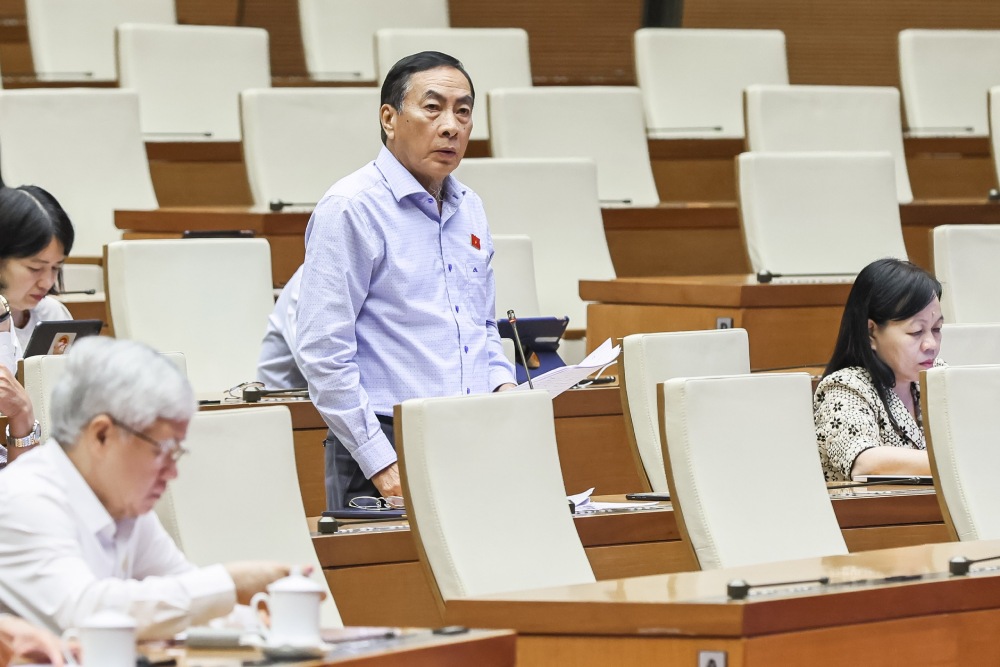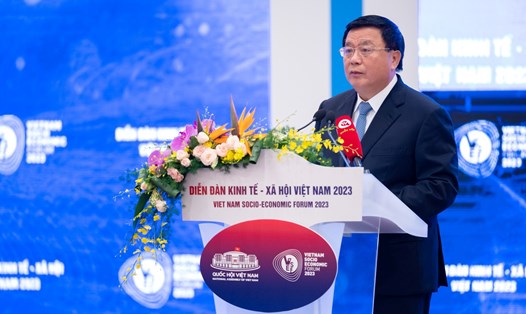On the morning of May 26, the National Assembly discussed the draft State Budget Law (amended).
Delegate Tran Van Lam (Bac Giang Delegation) commented on the issue of increasing the debt ceiling of local budgets.
The delegate said that when it is easy to borrow, debt will be high. If the public debt ceiling for localities is increased, delegates are concerned that it will dispers national resources, many small projects in the locality no longer have room to borrow to focus resources on large national projects and works that have been and are being implemented.
Sharing the same view, delegate Pham Van Hoa (Dong Thap delegation) proposed to closely control and monitor the locality's ability to repay loans when increasing the loan ceiling. Because there will be a situation where localities cannot repay when borrowing, causing the central budget to compensate, causing public debt to increase.
The delegate suggested closely monitoring how loans for investment development are, and what fields must be approved by competent authorities.

According to delegate Tran Van Lam, the draft proposes to remove value-added tax (VAT) collected from imported goods from the central budget revenue by 100%. Thus, this revenue will be regulated as VAT in the production and business sectors in the locality.
Considering this unreasonable, the delegate stated that VAT is an indirect tax, paid by consumers. Real consumers of goods are not only located at the border gate.
Because real consumption in other densely populated localities is the place that generates this source of income. If only the locality at the border gate is entitled to it, it will not be really reasonable and need to be considered.
The draft law also proposes that the Government allocate no more than 10% of the increase in import-export tax revenue across the border to reward localities at border gates.
According to the delegate, this bonus is not really in nature because the border gate is only a place where goods pass, while the place of production, increase export value or the place of consumption of imported goods subject to tax is not the border gate locality. Therefore, this policy is not for the right subjects.
Regarding the use of increased revenue and expenditure savings, the delegate agreed to consider adjusting regulations related to the use of this resource.
According to the delegate, in reality, this regulation is not currently reasonable. The amendment must re-establish order and priority for clarity and transparency so that compliance is consistent from the central to local levels.
According to the delegate, in the current period, investment must be prioritized to support growth. First of all, it must be for projects that are under implementation and are capable of absorbing capital.
If new projects are used, they must be projects that are in the medium-term public investment plan and are eligible for implementation earlier. Do not arrange to spread out for additional projects suddenly because if there are sudden problems, a draft will be handled according to other regulations.
According to the delegate, in reality, in the past, this source, including the Central and local levels, has been allocated to many projects that are not in the medium-term plan, not really urgent, so it is difficult to implement, there is money that cannot be spent, money is in the safe but cannot be disbursed. Thereby increasing the budget balance while borrowing from the budget, still having to pay interest.
"When there is money to increase revenue, it is wasted on small projects. When there is a need for a large amount of work, there is a problem with the source," the delegate noted.











